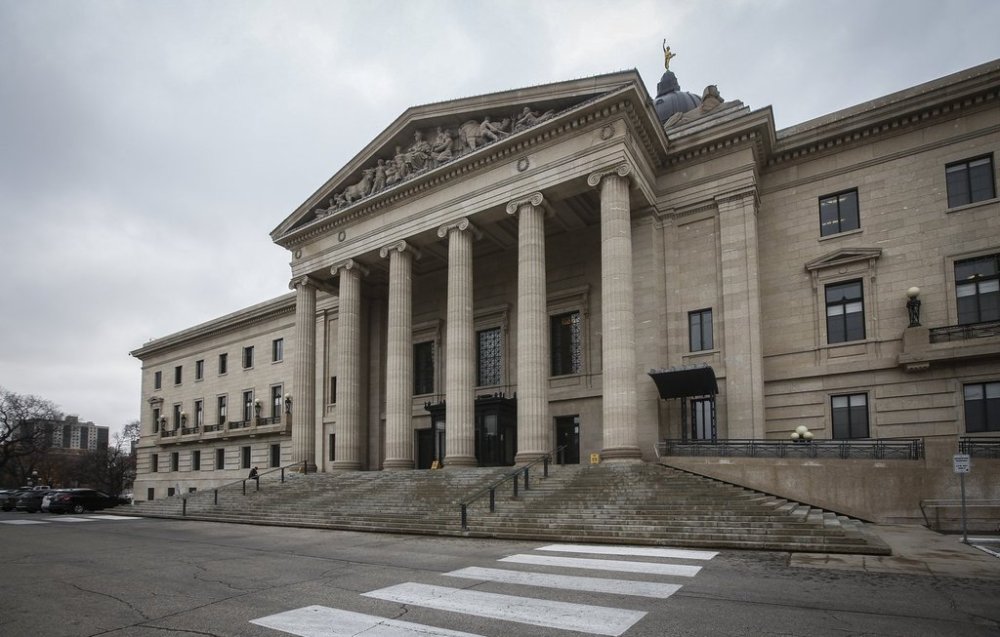Revised numbers show Manitoba’s touted interprovincial migration win didn’t happen
Advertisement
Read this article for free:
or
Already have an account? Log in here »
We need your support!
Local journalism needs your support!
As we navigate through unprecedented times, our journalists are working harder than ever to bring you the latest local updates to keep you safe and informed.
Now, more than ever, we need your support.
Starting at $15.99 plus taxes every four weeks you can access your Brandon Sun online and full access to all content as it appears on our website.
Subscribe Nowor call circulation directly at (204) 727-0527.
Your pledge helps to ensure we provide the news that matters most to your community!
To continue reading, please subscribe:
Add Brandon Sun access to your Winnipeg Free Press subscription for only
$1 for the first 4 weeks*
*$1 will be added to your next bill. After your 4 weeks access is complete your rate will increase by $4.99 a X percent off the regular rate.
Read unlimited articles for free today:
or
Already have an account? Log in here »
WINNIPEG – A historic breakthrough in the Manitoba government’s bid to attract and retain people, touted via a press release, has turned out to be a case of premature celebration.
Statistics Canada reported in June that, for the first time in more than 20 years, Manitoba gained more people from other provinces than it lost during the first three months of 2025. The agency noted its quarterly demographic figures are preliminary and subject to updating.
The Manitoba government issued a news release the next day that heralded the interprovincial migration gain and credited a strong economy. The news received media coverage. Premier Wab Kinew posted a video about the gain on his Instagram account, which reports more than 360,000 followers.

But the migration numbers have recently been revised. What was initially counted as a net gain of 106 people from other provinces in the first quarter of this year has turned out to be a loss of 389.
Statistics Canada says changes to preliminary numbers are not uncommon.
“The data initially released for Q1 2025 in June were considered preliminary, based on very timely sources, but required more extensive modelling due to their incomplete nature,” spokesperson Maryse Carrière wrote in an email.
“These data eventually get updated over time as less timely but more accurate and more complete data sources become available.”
The government said it repeated the data that was available.
“The data used for the news release in June was accurate at the time. Statistics Canada has revised their data, which is not uncommon,” the office of Malaya Marcelino, labour and immigration minister, said in a prepared statement.
It’s not the first time the Manitoba government has made a good-news declaration that later turned out to be questionable.
Last year, Kinew and other New Democrats held a press conference outside a home in Winnipeg’s St. Vital neighbourhood and said the homeowners would pay less in education property taxes under a revamped tax-credit system enacted by the NDP.
While the statement was true at the time, increases in property assessments and tax rates left owners of such homes paying more than under the old system, the government’s central communications branch confirmed earlier this year.
A political analyst said there is a lesson to be learned for governments from the migration numbers.
“I think the cautionary tale is that before jumping on the facts put out … one needs to reads the cautions,” Christopher Adams, an adjunct professor of political science at the University of Manitoba, said.
“I don’t think anybody is doubting the quality of Statistics Canada. I think, though, the government has to use more care when they’re just grabbing facts, even if they’re just good news facts, and putting them out to the public.”
Governments also tend to promote positive statistics in news releases and pay less attention to negative results, Adams said.
“It’s like gamblers. Gamblers always talk about what they won. They never talk about what they lost.”
While the revised numbers show Manitoba continues to lose more people to other provinces than it gains, the loss in the first quarter of this year was the lowest in many years. The second-lowest loss was of 398 people in the third quarter of 2020, Statistics Canada data showed.
This report by The Canadian Press was first published Sept. 29, 2025.
